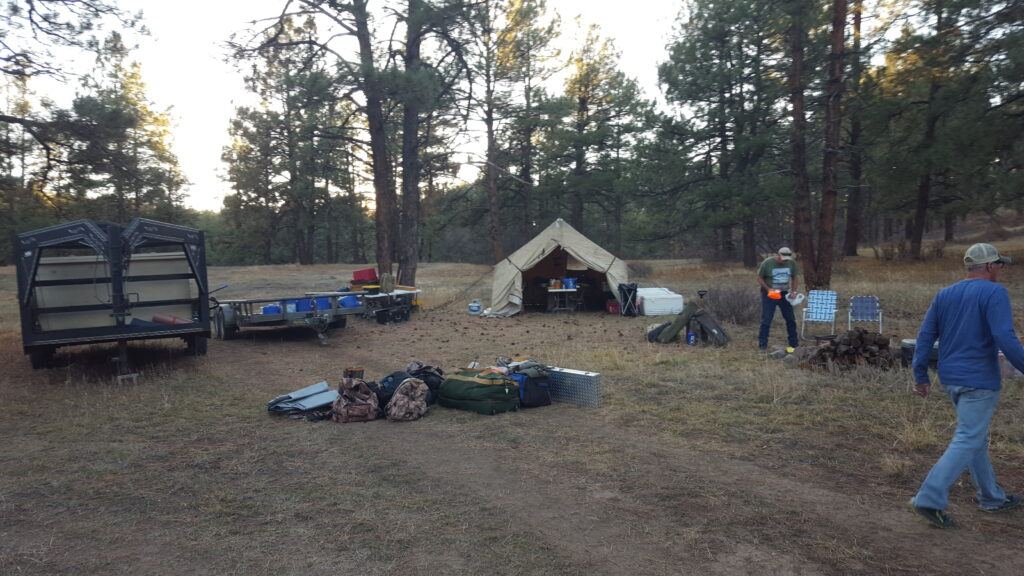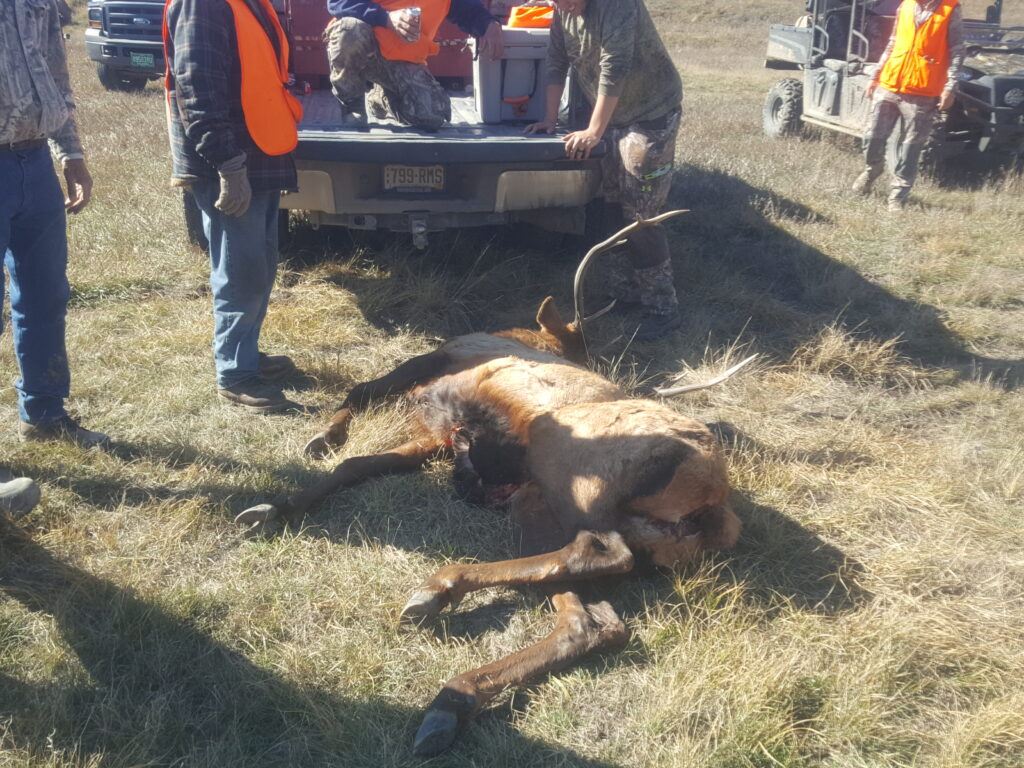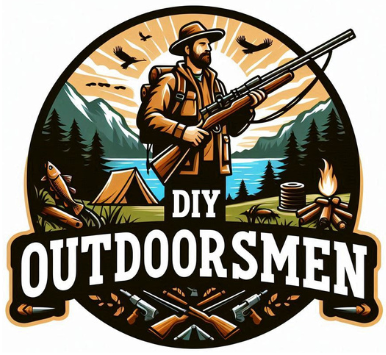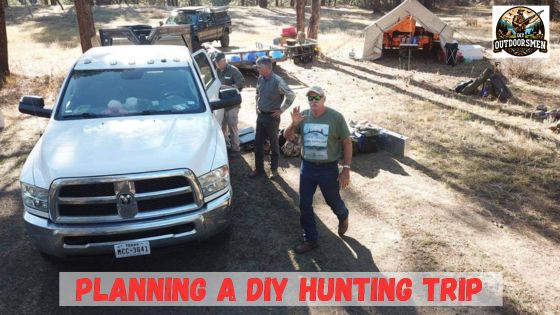Contents
If you want to organize a DIY hunting trip on a budget, it starts with a plan. First, take stock of what you currently have regarding gear and skills. Compare your current situation with the basic necessities for a hunting trip: adequate clothing, reliable equipment, and the right permits.
Now, setting aside a budget is critical. You can save significantly by prioritizing and researching the most cost-effective options for gear. Don’t forget to factor in potential hidden costs like game processing fees or emergency supplies.
When planning DIY Hunting trips on a budget your 4 main costs will be:
- Licenses and tags – These costs will vary by species, by state, and by residency status.
- Travel expenses – Food, fuel, and lodging expenses to get to your selected hunting area.
- Camping or Lodging expenses – Will you be camping in the National Forest, RVing in a campground, or renting a room or cabin?
- Food and Beverage expenses – What will you be eating and drinking for the duration of your hunt?
Licenses and tags are out of your control, but you can control your travel, lodging, and food costs with some planning and preparation. Timing can also play a big part in keeping costs down.
Off-peak, lower-demand, seasons may offer reduced rates for lodging and less competition for prime hunting spots. Hunting during the right season isn’t just about lower costs, though; it also improves your chances of a successful hunt as different game have different patterns throughout the year.
As you gear up with the essentials and plan around the right season, you’re setting the stage for a memorable experience. But remember, beyond the gear and good timing, it’s also about understanding the game and terrain. That’s where local knowledge can give you an incomparable advantage, which brings us to local hunting opportunities.
The Benefits and Limitations of Local DIY Hunting Trip Opportunities
I’m sure you’ll agree, there’s no place like home, including hunting areas. Exploring local hunting grounds offers a host of benefits, from familiarity with the terrain to savings on travel expenses. Hone in on what’s out there, right in your backyard.
First, you’re going to find out about regulatory considerations. Local laws dictate what you can hunt, when, and with what tools. It’s your responsibility to know these regulations inside out ignorance isn’t a defense if you’re caught in violation. You can start with your state’s wildlife agency website for accurate and up-to-date information.
Next up, let’s talk about game availability. Hunting close to home may limit your options depending on the area’s seasons, tag availability, and game populations. However, that’s not always a downside. It might force you to focus on mastering the hunt for a particular species, leading to a more challenging hunt and making you a better hunter in the long run.
Tapping local knowledge of other hunters, game biologists, and other outdoorsmen can be a very valuable resource as well. Joining local hunting forums and clubs can provide valuable insights from the other members. These can often be goldmines of information, offering insights into local hotspots and possibly even mentorship from experienced hunters. And don’t forget, building these connections can lead to shared hunts and cost splitting down the road.
However, local hunting does have its limitations. Pressure from other hunters can lead to overcrowded areas, making the hunt more challenging. And if you’re longing for variety or specific trophies, the local option may not work.

But remember, local hunting is a stepping stone, not the endpoint. It’s a fantastic way to hone your skills without breaking the bank. As you gear up with knowledge and experience from local hunts, you’re setting the stage for more elaborate trips later.
Preparation Skills and Safety for DIY Hunting Trips on a Budget
You might be impressed by how much you can save by simply sharpening your hunting skills and knowing the ropes of safety. Investing time in enhancing your abilities can lead to a more successful hunt without draining your wallet. Let’s start with skills. You don’t need pricey workshops. The internet is bursting with free tutorials and courses on everything from tracking to field dressing game.
Now, let’s talk safety because it’s often here that hidden costs can creep up on you. Equip yourself with basic wilderness first aid, which is something you can often learn at no cost. Keep a well-stocked first-aid kit with you; prevention is always cheaper than a trip to the ER. And don’t forget to inform someone about your plans and location, just to stay on the safe side.
Moving on to meals, here’s the thing: Don’t let food be an afterthought. Plan and pack your hunting snacks and meals. Think high-energy, non-perishable food items that’ll keep you going.
It beats paying for convenience on the go or risking your focus and energy on the hunt. Meal prep ahead of time and buying in bulk can save considerable cash.
Polish your camping skills. Will you be tent camping? Or, camping from an RV? Or, maybe renting a motel or cabin? Each option has different costs and, will require a different skill set as well as a different gear list.
Stepping into public land is a budget-friendly option that, when coupled with your honed skills and safety knowledge, could mean a rewarding hunt that’s kind to your wallet.
Public Land for DIY Hunting Trips on a Budget
With budgets top of mind, public land emerges as a prime option for your DIY hunt. Tapping into these areas can translate to substantial savings, as there are no fees like those associated with private land leases or guided tours.
Start by identifying public lands open to hunting near you. Local fish and wildlife agencies are excellent resources for this information. Scrutinize maps for the terrain, existing trails, and potential hunting hot spots. And, potential camping areas or sites close to your selected hunting areas.
Animal behavior and patterns dictate the success of a hunt, so understanding how topography influences game movement is crucial. Use this knowledge to strategically position yourself in areas where animals are likely to pass through. Many state wildlife departments can help you with finding likely areas for your chosen game species.
Pack wisely to handle the terrain and potential weather shifts. Essential navigational tools, sufficient water, and climate-appropriate clothing can’t be overlooked. Seasoned hunters will tell you: to always prepare for the unexpected. Better to have it and not need it than to need it and not have it.
So what’s next? Build a group of like-minded hunters to share the experience and the costs. Integrating strategic partnerships into your hunt can take it to the next level. Splitting costs and forming a hunting group can enhance both your DIY hunting trip experience and save your budget.
I’m a firm believer that a DIY hunting trip doesn’t have to be a solitary sport. Partnering with friends, family, and other hunters is not only a great way to split costs but also to enhance the overall experience and make new friends and memories.
The right hunting companions can share more than just a ride. Whether it’s gear, lodging, or insider knowledge about the terrain, there’s plenty to go around. Not to mention, shared expertise can make all the difference in a successful hunt. And, when it comes time to pack out an animal, the more friends to help the better.
So, why not establish a small group of trusted hunters and hunting friends? This group can become a resource pool for future trips, where everyone contributes in their own way. It’s practical and fosters camaraderie.

Planning DIY Hunting Trips on a Budget: Key Takeaways
Remember, each experience is a learning curve. You can always adjust your approach down the road, and these partnerships can help you refine your strategy. Hunting on a budget isn’t just about cutting costs; it’s about intelligent planning, skillful execution, and building relationships.
By sharing the load with others, you’ll find the hunting excursion becomes not only more affordable but more rewarding. And, the time to start planning is now!
And, as always, stay safe, enjoy the journey, and please try to leave it cleaner than you found it. If you have any comments, questions, ideas, or suggestions, please leave them in the comment section below, and I’ll get back to you ASAP. You can follow us on YouTube: Man Art Creations.
P.S. – Thanks so much for checking out our blog. We really appreciate it. Just so you know, we may receive a commission if you click on some of the links that appear on our site. This helps us keep our content free and up-to-date for everyone. We appreciate your support!



